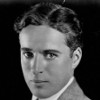“ When a man speaks in the midst of a great crowd, many of his words are not heard, or are forthwith obliterated from the memories of those who hear them; but amidst the silence of a mute and motionless throng the slightest whisper strikes the ear. In democracies men are never stationary ”
Alexis de Tocqueville, Democracy in America (1840). copy citation
| Author | Alexis de Tocqueville |
|---|---|
| Source | Democracy in America |
| Topic | democracy silence |
| Date | 1840 |
| Language | English |
| Reference | |
| Note | Translated by Henry Reeve |
| Weblink | http://www.gutenberg.org/files/816/816-h/816-h.htm |
Context
“It is astonishing what imprudent language a public man may sometimes use in free countries, and especially in democratic States, without being compromised; whereas in absolute monarchies a few words dropped by accident are enough to unmask him forever, and ruin him without hope of redemption. This is explained by what goes before. When a man speaks in the midst of a great crowd, many of his words are not heard, or are forthwith obliterated from the memories of those who hear them; but amidst the silence of a mute and motionless throng the slightest whisper strikes the ear.
In democracies men are never stationary; a thousand chances waft them to and fro, and their life is always the sport of unforeseen or (so to speak) extemporaneous circumstances. Thus they are often obliged to do things which they have imperfectly learned, to say things they imperfectly understand, and to devote themselves to work for which they are unprepared by long apprenticeship.”
source


